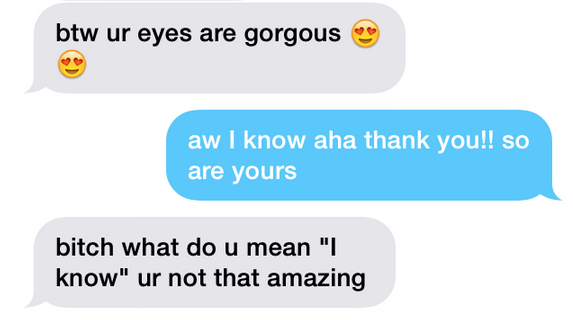Let’s talk about Catfishing, hookups, and Tinder.
There are many apps out there now for online dating and hookups, including an app called Plenty of Fish. No matter how much online dating is stigmatized, it is gaining popularity, with 1 in 10 Americans having used some form of online dating.
Online dating is so interesting because it is essentially Agre’s cyberspace: “a space apart from the corporeal world – a hallucination.” So what happens when people transition from the hallucination back into reality? Does that transition happen, and how often does it happen? More importantly, what does the entire process look like. When someone decides to do online dating, do they start in the real world and transition into cyberspace until they find mate(s) to meet in-person? Or do they begin with their mentality in cyberspace, which includes changing their online identity. The line between the online and offline identity can vary, and for some, the gap could be big.
Catfishing has caught enough attention that it has its own MTV show, Catfish. There are many catfish in the online dating scene, and many people have taken advantage of their freedom to explore an identity that may be different from their online identity. Catfishing could include stealing a name or stealing pictures to make the ideal online profile. Catfishers are not concerned with the unethical acts they have enacted (stealing personal property), but instead risk losing the trust of their online lover to find love.
In the ways that community has changed its definition with technology (Wilson), is the definition for a relationship vulnerable for re-evaluation as well? Communities no longer have to be defined by people with face-to-face interaction, but can intimate relationships survive without face-to-face relationships? Then again, for some people, an intimate relationship is not what they are looking for; many apps exist to assist in the one-night stand.
Men have also used computer-mediated communication to have power in the relationship knowing they have little consequences. A Buzzfeed post featured a social experiment where instead of denying compliments, women agreed with them to see what would happen. The results are disheartening. It seems that whether women agree or disagree with compliments, they are seen as ‘rude’ and ‘self-less.’
What do we gain from online dating that we would otherwise lose from real dating? What might online dating look like 10/20/50 years from now?
Will it look like her?


